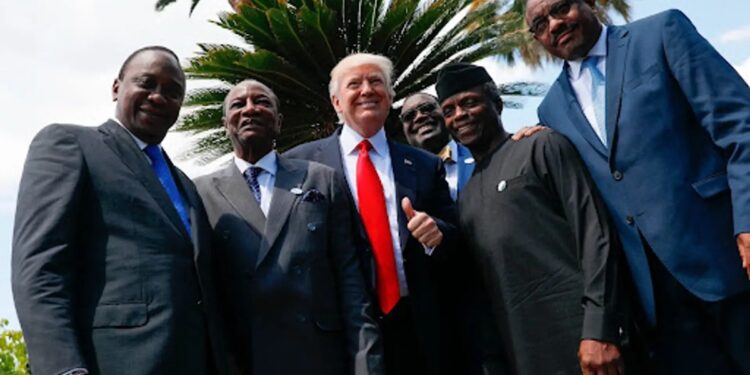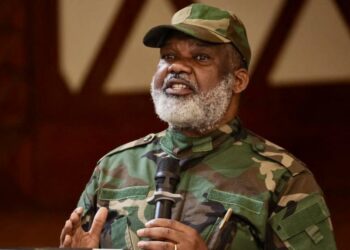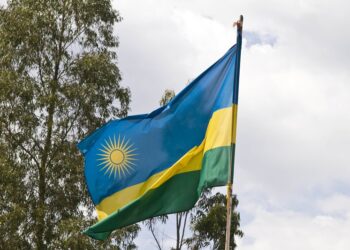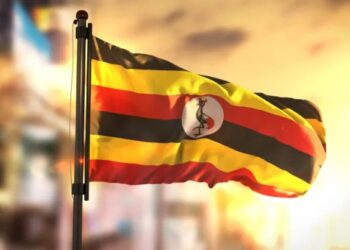In many African countries, the United States is no longer the investor of choice. This has left a gap for India, Turkey, Russia, and China to ramp up their diplomacy, trade, and investment here. A huge amount of the continent’s infrastructure is driven by Chinese companies. Most of it is backed by funding from Beijing. China is building roads, ports, and airports all over Africa, further strengthening its presence on the continent. All this is in exchange for resources, friendship, and political and economic influence. In the new age of global politics, the best way to accomplish these goals is to promote an international order based on democracy, human rights, and free enterprise—to extend the zone of peace and prosperity that the United States helped establish in Europe to every other region of the world. Put differently, the United States needs to integrate the world’s have-nots into the globalized West. Pursuing that goal is not charity. Creating an international order in which more people are free and prosperous is profoundly in America’s self-interest. In a world of market democracies, America and Americans are likely to be both more prosperous and more secure. In such a world we are most likely to realize the promise of globalization while minimizing its dangers.
Much like his candidacy, Donald Trump’s presidency has been described as populist par excellence and as fundamentally breaking with the liberal internationalist tradition of American foreign policy. Assassination attempts, criminal convictions, and a change in political opponent couldn’t stop Republican Donald Trump from winning the 2024 US election. “Despite polls predicting a nail-biter, the final results were fairly decisive, and although we do not know the precise composition of the new order, we know Trump will be at the top of it,an analyst says. From the campaign trail, Trump raised concerns that the U.S. is paying too much to support Ukraine. He’s promised again to withdraw from the Paris Climate Accords. And he has floated the idea of a 10% tax on imports from all countries and a much higher tax on China, echoing at rallies that “China is eating our lunch,” to groans and applause. In addition, Trump has vowed to surpass deportation numbers from his first term. With plans to use the National Guard to round up undocumented immigrants, Trump has also invoked the Alien Enemies Act, an 18th-century law that allows the president to deport noncitizens from nations deemed hostile to the United States.
Perhaps interesting to note, Trump’s previous administration adopted an “America First” policy that deprioritized Africa, withdrawing from major trade agreements and cutting funding for aid programs. A second Trump presidency is likely to continue this trend, focusing on domestic economic growth while tightening trade policies that favor U.S. interests. Now there are reports that Trump may reintroduce a “global gag rule” that prohibits US funding to NGOs in countries like Uganda if they are providing abortion-related services. This rule applied to all US global health funding. In Morocco, Trump’s return has stirred optimism about Washington’s stance on Western Sahara. During his first term, Trump recognized Morocco’s sovereignty over the disputed region—a move that has not been reversed by Biden. While this shift has yet to yield concrete results, Morocco hopes Trump’s second term could bring further support. Security remains a key interest for the US in the Horn of Africa, where ongoing conflicts, such as the civil war in Sudan, have disrupted stability. Analysts predict the Trump administration may reduce funding to Somalia, potentially redirecting resources to Somaliland as part of its strategic interests in the region. While the G20 has recognized the African Union as a permanent member, concerns persist about the organization’s effectiveness in representing the continent’s interests on the global stage.
Trump’s style of diplomacy both eschewed the conventions of the US’ preferential treatment of allied nations and its intolerance of dictators. He led a charge to get NATO country members to pay more toward collective defense. He pushed the allies to bring Russia back into the fold of the G7. He also attempted to warm relations with North Korea and embraced controversial, often nationalist leaders—such as Rodrigo Duterte in the Philippines, Jair Bolsonaro in Brazil, Hungary’s Viktor Orban, and Poland’s Andrzej Duda. In 2022, he has called Russian President Vladimir Putin a “genius” for invading Ukraine and described Chinese President Xi Jinping as “brilliant” for controlling his people with an “iron fist.” Xolela Mangcu, a sociology professor at George Washington University, said Trump’s election victory offers African countries, particularly South Africa, a chance and an incentive to adjust diplomatic and economic strategies to navigate the changing American foreign policy landscape. The Guardian’s Washington bureau chief, David Smith, said more effort would be devoted to oil exploration and production, which would have disastrous implications for the global environment.
Trump’s Presidency and Africa: Transformation or Status Quo?
Back in 2016, “America First” seemed to promise a clear defense of U.S. primacy in a changing world order. That appealed to many voters. Previously, in an interview with the New York Times, Trump explained that what he meant by the idea was that his administration would prevent other nations from taking advantage of the United States. But whatever he meant, those words come with nearly a century’s worth of political baggage. However, South African political analyst Daniel Silke believes that Washington’s focus on geostrategy and efforts to invest in parts of the continent and strengthen diplomatic ties in Africa would continue—regardless of who wins the White House. Silke said that despite Trump’s “America first” rhetoric, the world demands action from the US. The growing influence of China, Russia, and other countries would force Trump and his administration to be less isolationist than many would think, Silke added.
At another point, if Trump sees West Africa through the prism of relations with Moscow and his planned deal with President Vladimir Putin over the war in Ukraine, it will introduce a wild card into the region’s politics. Meanwhile, with the erosion of global rules and Trump’s return to the White House, signals shifts in US-Africa ties with focus areas such as trade partnerships, security cooperation, and the China-Russian competition on the continent. Trump argues that the global trading system is rigged against U.S. interests and responsible for large trade deficits, declining U.S. manufacturing, and the offshoring of American jobs. The Republican platform promises to return the United States to the “manufacturing superpower of the world” through “rebalancing trade” towards domestic production.
Of Trump’s stated foreign policy positions, his planned protectionist trade policy would likely be the most immediately damaging to Americans; his proposed tariff increases would spark a global trade war and drive up prices for American consumers. In the longer term, his ideas about the US role in international affairs could erode US diplomacy and undermine institutions like NATO and the UN. That could have lasting effects on the geopolitical landscape, much as his first-term foreign policy decisions did. Priyal Singh, a senior researcher at the Institute for Security Studies, a human security think tank headquartered in South Africa, noted that US relations with the continent arguably reached new lows during the first Trump administration due to three key issues on a German-based International Politics and Society:
- Firstly, the administration’s considerable skepticism of, and contempt for, international organizations and multilateral policy processes signaled to many African countries that the US was not a reliable, principled, or committed partner on the myriad global governance and security issues that disproportionately affect African states. This issue was perhaps most acutely felt following delays and proposed cuts in the US-assessed contributions to the United Nations peacekeeping budget. Africa is home to the UN’s largest peacekeeping operations, and waning US support for these operations has very tangible material impacts on their effectiveness and continued operation—coupled with the deleterious implications for the continent’s broader peace and security environment. Similarly, the US’ cessation of voluntary funding to the UN Relief and Works Agency, its withdrawal from the UN Human Rights Council, the UN Educational, Scientific and Cultural Organisation, and the Paris Climate Agreement, and its submission to withdraw from the World Health Organisation, amongst many other international organizations and policy processes, signalled the Trump administration’s disdain for the global rules-based order. US-Africa relations were considerably soured during this period by the then president’s offhand and derogatory remarks directed at African states and their peoples. Many African countries that remained committed to this order, which was still largely seen as being under the stewardship of the US, found this behavior particularly worrisome. It signaled an unprincipled about-turn on Washington’s part—again, casting the US as an unpredictable international partner.
- A second major factor contributing to strained US-Africa relations during the first Trump administration was its clear disinterest, or arguable benign neglect, of the region. This was marked by long delays or a complete lack of filling key US diplomatic posts in Africa and a lack of meaningful presidential initiatives specifically targeting the continent. Bilateral trade continued to decline during this period, relative to the continent’s trade with other emerging powers and partners from the Global South.
- Lastly, US-Africa relations were considerably soured during this period by the then president’s offhanded and derogatory remarks directed at African states and their peoples. These remarks, which drew international anger and official responses from African capitals and the African Union, affirmed the view that Trump clearly did not hold the region in high regard and maintained an outwardly disrespectful view of African countries. Cumulatively, this period was marked by the absence of a meaningful US strategic vision for the region, with clear aims or objectives, or any direct personal investment by the sitting president, he concludes.
Adapting to Change: African Strategies for Trump-Era American Policies
Trump’s rivalry with China also complicates Africa’s position, given China’s deep investment in the continent. Analysts expect Trump to pressure African nations to distance themselves from Beijing, creating difficult choices for countries reliant on Chinese infrastructure funding and trade. Yet, that pressure could backfire: Experts argue that Trump’s detachment from Africa could spur the continent to seek alternative partnerships. According to experts, Africans’ opinions do not always align with U.S. policy priorities, most notably regarding the attachment of economic or political conditionalities to development assistance and national control over development spending. Given China’s increased unconditional spending and attention to the region, as well as emphasis on Africa’s stated priorities such as improved infrastructure, it’s no wonder China and partners with similar strategies have been gaining influence on the ground so quickly. A Trump administration unwilling to engage in international climate cooperation will leave China as the biggest player—with the technology and goods the rest of the world requires for the green transition. The international influence this will grant China should not be underestimated. This year’s Forum on China–Africa Cooperation saw a suite of commitments to increasing cooperation in renewables and green technology. The summit also saw commitments to deepen cooperation on another potentially paradigm-shifting technology: AI. China’s keenness to become a leading player in global AI governance presents a similar challenge for an inward-looking US. Furthermore, observers say China is keen to share expertise and collaborate with countries in the Global South on direct implementation of AI systems, for example, in smart city projects. Absent the US—the only other serious competitor—China will be able to set international standards for the use of AI and establish long-term dependence on Chinese norms and systems.
Away from China, in the writing of Christopher Isike, the Director of the African Centre for the Study of the United States, and Samuel Oyewole, a post-doctoral research fellow at the Department of Political Sciences, both at the University of Pretoria, for The Conversations, it states that despite the fear it raises, the second coming of Trump offers opportunities for self-development as Africa may be forced to depend less on US aid. Instead, it could look to harness its vast human and material resources for its own development. As US priorities shift under Trump 2.0, African leaders will face decisions on how to navigate partnerships to secure investment, maintain political stability, and address the continent’s long-term development needs through inward-looking strategies. This bodes well for the continent in the long run. In an increasingly multipolar world characterized by multiple powers challenging US hegemony, African countries have an opportunity to pursue diversified alliances. They must balance between US, Chinese, Russian, and other international influences in ways that will benefit Africans. By way of conclusion, Isike indicates Trump’s distinct style: “He is a dealer. He transacts based on what he can get.” For African leaders like Ugandan President Yoweri Museveni and Rwandan President Paul Kagame, who have faced human rights scrutiny, Trump’s approach might bring advantages—though only if they align with his broader interests.



























































